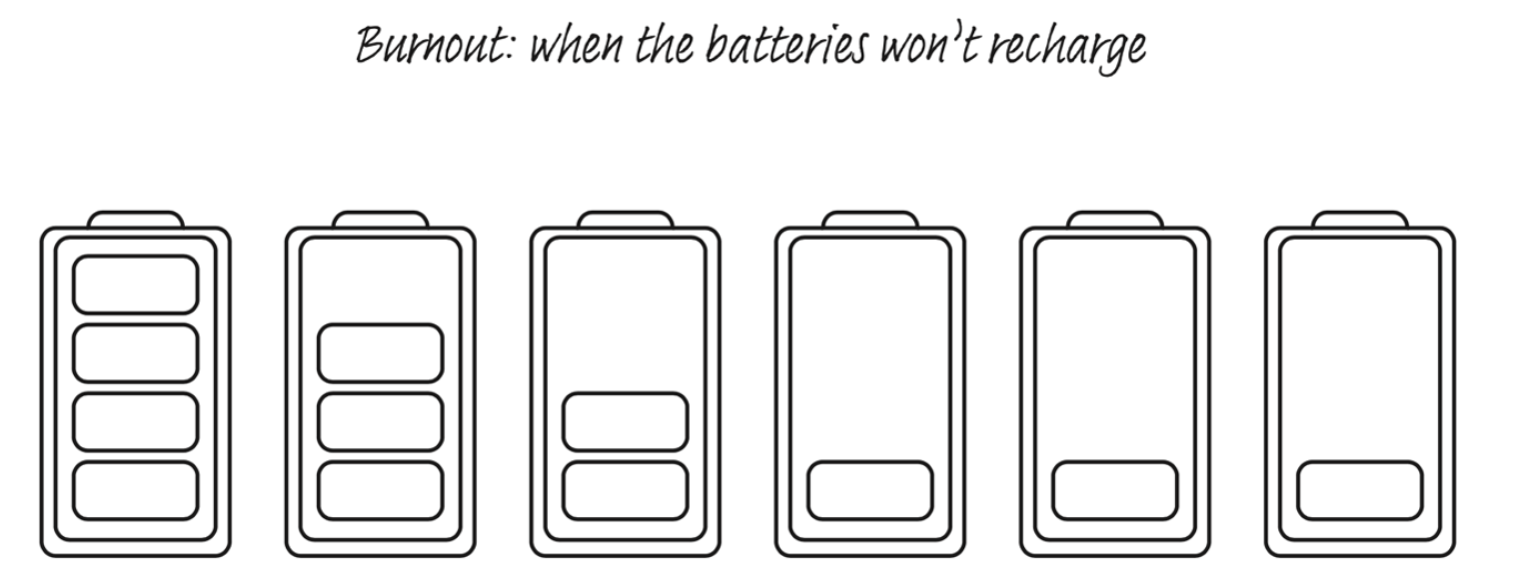A bit like a candle burning down, burnout is a slow burn. It doesn’t happen overnight. That’s one of the challenges in spotting it. But learning to identify the early-stage signs helps us reduce the chances of burnout going undetected.
There are three red flags that leaders can look out for in themselves and in those they lead, that indicate that someone may be suffering from burnout. They are:
- chronic exhaustion,
- cynicism or depersonalisation, and
- a reduced sense of accomplishment or professional efficacy.
Someone suffering from burnout is likely to demonstrate a combination of signs that point to these three factors. In this exclusive excerpt from Beyond Burnout (Penguin Random House 2020), discover how to identify the first of those three red flags – chronic exhaustion.
Red Flag #1: Chronic Exhaustion

When I was burned out, my exhaustion was bone deep, chronic and all-consuming. I’d wake up exhausted (my baby girl was still waking in the night, but I was also suffering from bouts of insomnia over work), so I’d go to work exhausted. I’d come home exhausted. And I’d spend my weekends exhausted (trying to hide it and appear ‘social’ and happy for my husband and friends). I couldn’t seem to get over this bone-deep tiredness. I even went to my doctor, who ran some tests, but found nothing. He told me to slow down. ‘How the hell am I going to do that?!’, I fumed indignantly in my head. I was more tired and lacking in energy than I’d ever been in my life, even more so than when I had newborn babies.
But I soldiered on and dug deeper. I put it down to leading my team through the GFC, to juggling having three kids, and to paying a small price for ‘having it all’. Super Suzi was strident. And she was in the driver’s seat. ‘Suck it up and take a teaspoon of cement! Other women do what you’re doing all the time. Don’t be weak,’ I told myself. But as I said these things inside my head, I wondered how I’d have enough energy to get through another day at work.
We’ve all experienced times at work when we’re exhausted or ‘over it’. Ebbs and flows in energy and motivation are part of working life. We can expect to have periods of intense activity and higher stress sometimes. It’s natural for us to feel fatigued during these times. Even feeling weary at the end of a week, or at the conclusion of a big project, is not only likely — it’s normal. But we take a break, we rest and our tank fills up again. We’re then ready to face the next challenge with our batteries recharged.
That’s not burnout.
Burnout is a chronic, debilitating and relentless exhaustion that’s prolonged and — if left unchecked — extreme. It’s when that holiday or the weekend off doesn’t do its job. The exhaustion just won’t go away. This tiredness is way more incapacitating than usual work-weariness. It can’t be remedied by short breaks. It’s when our batteries can’t recharge, no matter how much we plug them into whatever normally recharges us.

It’s when our usual ‘bounce back’ factor doesn’t . . . well, bounce back.
Our bodies can be a litmus test. Ongoing physical and mental exhaustion can be markers of burnout. For Jenny, a high-performing surgeon, this presented as physical exhaustion:
‘I remember my really good friend and mentor, who had known me from when I was a junior registrar, would try and take me out swimming to just try to give me a relief between home and work. But I just couldn’t do it. I just had to get out of the pool. It was too much. I couldn’t enjoy it at all.’
SOME QUESTIONS WHICH MAY INDICATE BURNOUT- LEVEL EXHAUSTION:
- Do you feel physically exhausted or ‘wiped out’?
- Do you feel tired all the time?
- Do you go on holiday or take a break but come back just as bushed?
- Do you always experience an overwhelming sense of relief that the weekend has finally arrived?
- Do you worry that there is no time you can take off work without negative consequences?
- Are you experiencing difficulty or an inability to concentrate at work?
- Do you feel as though you have nothing left to give?
- Do you drag yourself to work and have trouble getting started?
- Do you lack the energy to be consistently productive?
If you (or someone you lead) answers ‘yes’ to some or most of these questions, it could be a sign of burnout-level exhaustion.
There are two other red flags, which you can learn more about in Beyond Burnout, my book designed to help leaders recognise and stamp out burnout in their organisations. Get your copy here or here or if you’re interested in having me speak to your organisation, get in touch.
Related: Ditch the Bad Habits: 4 Stages of Awareness To Be a Better Leader



